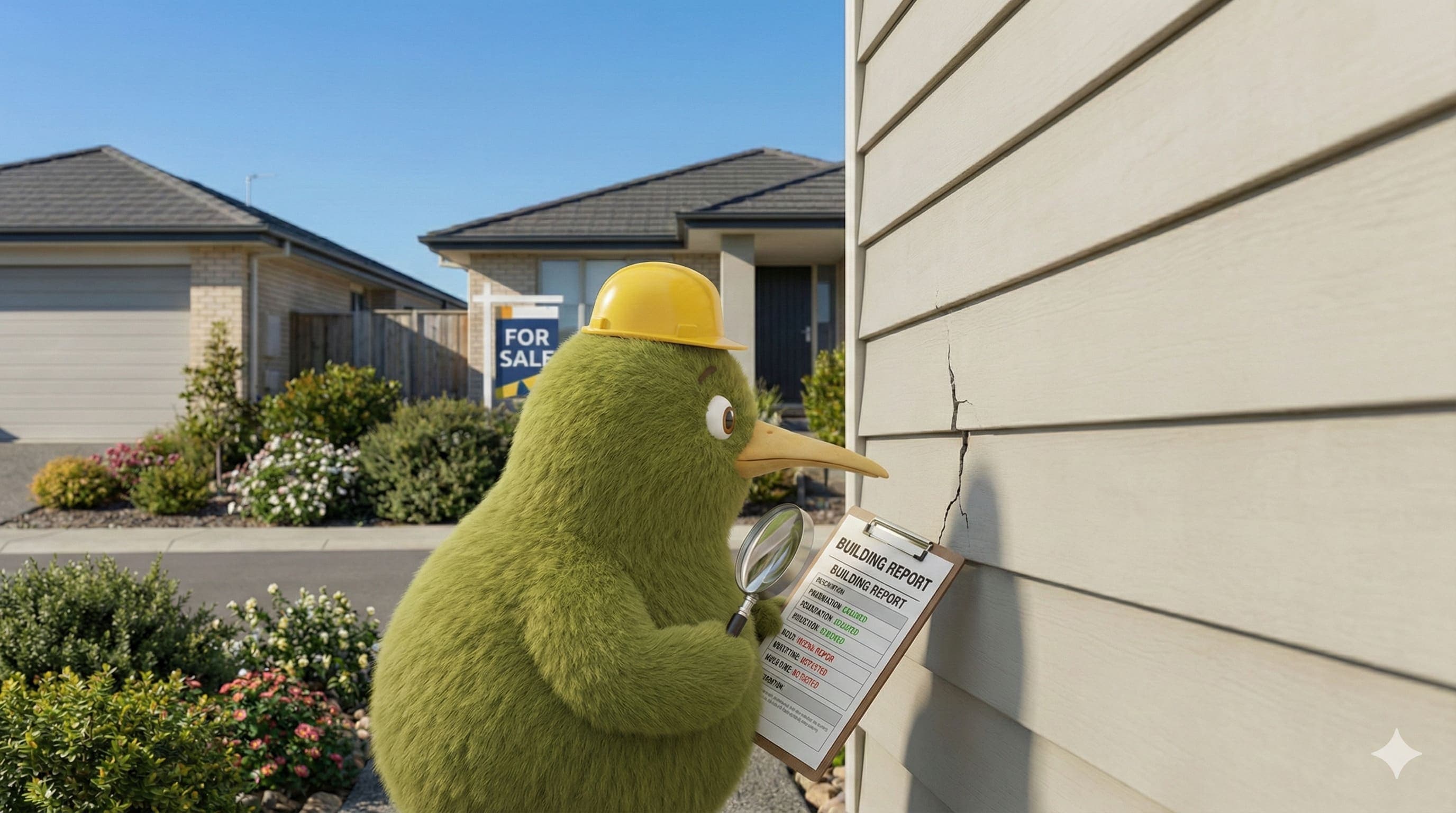This article is brought to you by Schnauer & Co Lawyers
Disclaimer:
The information on this website is for general guidance only and does not constitute financial, investment, or legal advice. Always do your own research and seek personalised advice from a qualified financial adviser, mortgage adviser, or lawyer before making financial or legal decisions. All investments carry risk and past performance is not indicative of future results.
Key Takeaways
- Unit titles mean shared ownership of common property.
- Body Corporate rules affect alterations, pets, and costs.
- Check the plan for unconsented changes or discrepancies.
- Maintenance responsibilities are split by legislation.
- Understand levies and long-term maintenance obligations.
Schnauer & Co often have enquiries about unit titles (or cross leases), considering how expensive it is to buy a freehold property in Auckland. Most first home buyers don't quite know what "bundle of rights" comes with owning this type of property.
When buying a unit title, you must study the plan to ensure there are no structural or physical alterations to the unit which are not shown on the plan (which is also done when looking at a cross-lease property). Unit titles are often referred to as 'strata title' or 'stratum estates'. Apartment buildings, townhouses, and units in a complex are common examples of strata-titled properties.
Pros and Cons
A strata title can be a more affordable way to enter the property market, with the benefit of shared amenities and the fact that the Body Corporate ensure a lot of the general maintenance is attended to. The downside can be high levies, ongoing costs and rules which some may find complex. Also, some lenders tend to only approve finance for buyers with at least a 20% deposit.
Unit title owners own a defined part of a building (the relevant unit and an accessory unit, which can be a carpark and/or a locker to store sporting equipment, etc) within a larger building or complex, and along with a shared ownership of the common property (lobby, gardens, pool, lifts etc). This differs from freehold ownership where one owns the land and building outright. It is similar to owning a piece of a larger puzzle, where you have your own piece (your unit) and share the rest of the puzzle (common areas) with others.
Understanding Body Corporate
All unit owners together constitute a "Body Corporate" which has rules relating to what the various unit owners can and can't do. Some complexes appoint a professional Body Corporate manager to handle the complex administrative, financial, and maintenance duties.
There is a standard set of rules set out in the Unit Titles Act 2010 (UTA) which can be varied by unanimous resolution of all unit owners and certain other rules which can be amended by a simple majority resolution at the meeting of the Body Corporate.
You must not undertake any structural alterations to your unit without the consent of the Body Corporate. Furthermore, if you intend to make any alterations to your unit or improvements at the property then depending on the nature of such alterations, you may need to obtain a new unit title which can be costly.
Insurance Requirements
All units in the complex must be insured for building insurance under a sole Body Corporate policy which will already be in existence. The insurer can be changed if the owners resolve to do so at a Body Corporate meeting. Your legal adviser can order your COC (Certificate of Currency – the certificate to confirm that the unit is insured under your name and which also notes your lender as an interested party) when the agreement for sale and purchase has gone unconditional.
On the Unit Title plan, there are areas marked "Common Property" and all unit owners are entitled to use these areas. Any maintenance costs or other costs that are attributable to the entire property which are not directly attributable to the individual units, are payable by all unit owners in the shares allotted to each unit. Sometimes there are areas on the Plan that has been set aside for future development by the original developer of the entire property.
Maintenance Responsibilities
What maintenance is the Body Corporate responsible for and what would you be responsible for?
There are lengthy definitions in the relevant legislation which we will address. Any part of the building that relates to or serves more than 1 unit and are necessary to the structural integrity, the exterior aesthetics, or the health and safety of occupants is the Body Corporate's responsibility. For example, foundations, roofing and essential structural components.
As is, Infrastructure that is essentially for all shared services and utilities, whether to or from a unit or to or from the common property. For example, leaky apartments needing cladding repair are handled by the Body Corporate. In the past there have been arguments, particularly if a unit owner does not want to or could not pay to repair of say a deck which the Body Corporate had typically viewed as the individual owner's responsibility.
However, with legislation changes, decks are a good example as these are now building elements for the Body Corporate to deal with (if they fall within the definition above).
Legislation
The UTA superseded those rules set out previously which prohibited pets. You should always refer to any agreed variations to the rules which are registered on the Supplementary Record Sheet to the Record of Title for the unit. This Act does not specifically address pets in detail, but it establishes a framework for body corporate rules, which can include restrictions on pets. A precedent set in 2018 clarifies that Body Corporate rules prohibiting pets can be challenged. It is common to see variations of rules which allow the Body Corporate the right to consent to pets (based on size, how many pets etc).
If a Unit-Titled complex wishes to add to the default rules, they can register new rules. Any new rules must relate to the control, management, administration, use, or enjoyment of the units in the Body Corporate, and cannot be contrary to the latest Act. You therefore cannot use rules to contract out of the latest Act, or any other legislation.
2024 Legislative Changes
A final set of changes intended to improve how unit titles are managed came into force on 9 May 2024. There are now new rules around long term maintenance plans, Body Corporate contracts, regulator enforcement provisions and new regulations must now be complied with.
The Unit Titles (Strengthening Body Corporate Governance and Other Matters) Amendment Act 2022 addresses all changes to requirements for long-term maintenance plans (LTMP) and LTMP funds, the requirement for contracts between Body Corporates and Body Corporate managers to contain specific terms, enforcement provisions for the regulator, and provisions requiring regulations to be made.
New Regulations
The Unit Titles Amendment Regulations 2024 (Regulations) amending the Unit Titles Regulations 2011 are now in force implementing some of these new changes.
Long Term Maintenance Plans and Funds
The general position remains the same: all Body Corporates must establish and maintain a LTMP with no ability to opt-out by special resolution, and Body Corporates must establish and maintain a LTMP fund unless they resolve by special resolution not to.
There are some amendments to the requirements, form and content of the LTMP and LTMP funds. All Body Corporates must have an LTMP that covers at least a 10-year period, except for large unit title developments (10 or more units) which must cover a 30-year period to be reviewed every 3 years or sooner if it will have a material impact on the unit title plan. A Body Corporate of a large unit title development must, unless special resolution occurs, consult suitable qualified professionals when preparing the LTMP. The LTMP must now summarise the current state of the common property and state the sources of funding for the plan. A Body Corporate which resolves not to establish a LTMP fund will now be required to review that decision annually in accordance with the Act.
Pre-Contract Disclosure Statement (PCDS)
A pre-contract disclosure statement must include several important matters. These include details of all Body Corporate funds and bank accounts such as bank statements, financial statements and audits, and levy information covering how much is paid, how often, any unpaid levies, and information about any special levies. The LTMP and funds along with the next review date must be provided, as well as information about insurance and certain building status information depending on location. The latest Body Corporate rules, notices, agendas and minutes of Body Corporate and committee meetings are usually enclosed as they would be requested anyway. Contact details for any current Body Corporate or committee chairperson or current or past Body Corporate manager should be included, along with details of any proceedings in any court or tribunal that the Body Corporate is involved in, including any disclosure about weathertightness matters.
Important: For more information, visit unittitles.govt.nz
It is important to check the pre-settlement disclosure statement (PSDS) in case new information is mentioned when this is issued just prior to settlement. There is a deadline for the vendor to provide this. The PSDS is an opportunity to provide more updated information between the date the PCDS was issued and then just prior to settlement.
What happens with unplanned maintenance?
These costs are usually paid from the operating account or, if there are insufficient funds received from the annual levies, sometimes special levies will be invoiced to unit owners. A resolution could also be passed by the Body Corporate Committee to transfer money from the long-term maintenance fund to the operating account.
Frequently Asked Questions
Related Articles

Buying a Monolithic or Plaster Home in New Zealand: What First Home Buyers Should Know
Essential guide for first-home buyers considering monolithic or plaster homes in New Zealand. Learn about weathertightness, inspections, insurance, and legal protections.

The Challenges of Cross Lease Properties
Essential guide for first-home buyers on cross lease properties in New Zealand. Learn about defective titles, lease instruments, and what to consider.

Buying An Apartment Off The Plans - 6 Things To Look For
Essential guide for first-home buyers considering an apartment off the plans. Learn about body corporate, sunset clauses, and due diligence.

Why Building Reports Are Essential for First Home Buyers
Essential guide on the importance of building reports and pre-purchase property inspections. Learn what they include, costs, and how to act on findings.
